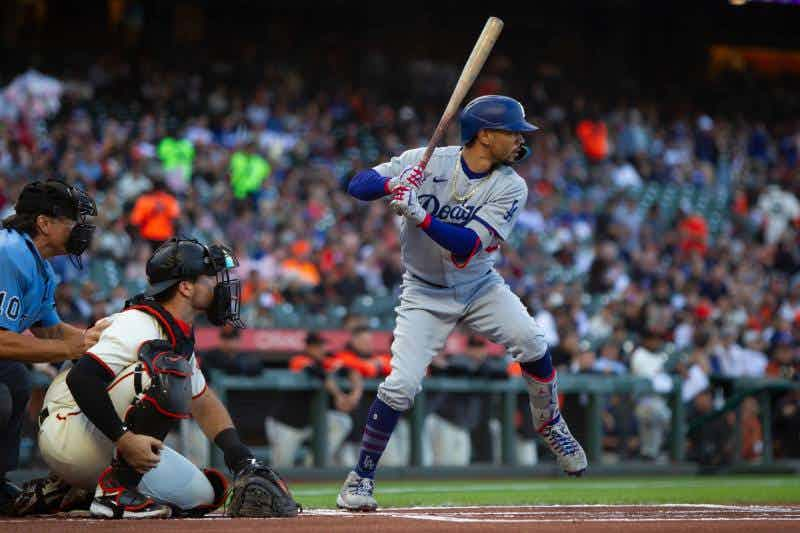As Major League Baseball teams transition from spring training to the regular season, players say they’re replacing their once-ubiquitous cans of smokeless tobacco with modern, tobacco-free nicotine pouches. And, according to Fox Sports, U.S. pouch market leader ZYN is the brand most big leaguers like best.
Of course, ballplayers might just refer to all nicotine pouches as “zyn”—the same way people call all facial tissues “kleenex.” But ZYN rules the rapidly growing pouch market (64.9% of U.S. nicotine pouch volume in the second quarter of 2022), so it probably dominates baseball locker rooms too.
ZYN manufacturer Swedish Match was recently bought by tobacco giant Philip Morris International for $16 billion.
Big league baseball and smokeless tobacco: 1869-2016
Baseball players have always used smokeless tobacco. When professional baseball began—just after the Civil War—chewing tobacco was by far the most popular form of tobacco use in the United States. In fact, mass-market, machine-rolled cigarettes didn’t arrive for more than a decade after the earliest pro baseball was played.
Not that it mattered, because smoking a cigarette or cigar while playing baseball would be all but impossible anyway. But pitching, hitting and fielding a ball were easily accomplished with a mouthful of dip or chew.
So for nearly 150 years, baseball was associated with smokeless tobacco use. Tobacco companies sponsored teams, issued the first baseball cards, and advertised on outfield walls in ballparks from coast to coast, and from Canada to Latin America.
But the romance between baseball and smokeless tobacco was rudely interrupted in 2016, when the collective bargaining agreement between Major League Baseball players and owners prohibited new players from using smokeless tobacco. The agreement also forced veteran players, who were able to keep dipping through a grandfather clause, to leave their cans of Copenhagen and Skoal in the clubhouse during games.
Around the same time, the Campaign for Tobacco-Free Kids launched an initiative to ban smoking and smokeless tobacco use in major league stadiums. As of 2022, 16 of 30 MLB parks have banned tobacco use for both players and spectators, either by rule or local or state laws. Even players allowed to continue using tobacco (because of the agreement’s grandfather clause) were banned from using tobacco in those 16 parks. (Minor league baseball banned smokeless tobacco use in the early 1990s, but that rule has been widely ignored and rarely enforced.)
But at the same time big leaguers were looking for ways to quit (or hide) their tobacco use, along came a new nicotine product that worked just like smokeless but didn’t violate the collective bargaining agreement—because it doesn’t contain tobacco.
Nicotine pouches are ``taking over``
Nicotine has well-known benefits that make it attractive to professional athletes. It improves focus, working memory and reaction time, and it aids concentration for people who have attention deficit issues. But smoking or vaping while playing a demanding physical game really doesn't work.
It’s not just baseball players that use some form of oral nicotine product. Football players have long used smokeless tobacco, and many hockey players (see NHL star Alex Ovechkin below) use snus or pouches. Of more than 400 Finnish athletes funded by their National Olympic Committee in 2002, 25 percent said they used snus. A 2017 study showed that athletes believe nicotine helps their performance.
There are obvious reasons nicotine pouches like ZYN are growing in popularity—in baseball and other sports, and among the nicotine-using public. They provide the nicotine many people love, and pose no known health risks. Like FDA-approved nicotine gum and lozenges, they contain only pharmaceutical-grade nicotine, flavorings, and cellulose filler.
While almost all North American and European smokeless tobacco sold currently is much, much safer than smoking, nicotine pouches eliminate the tobacco altogether. It’s hard to imagine a safer nicotine product. Despite the howls from anti-nicotine zealots, there’s no health-based reason baseball players and other adults shouldn’t use them. (The FDA still hasn't granted marketing authorization to any nicotine pouch, however.)
Pittsburgh Pirates pitcher J.T. Brubaker told Fox Sports that he switched from canned snuff (dip) to pouches a few years ago and hasn’t looked back. "I’ve heard stories about old clubhouses that had tins of dip just laying around everywhere," Brubaker told Fox. "But it’s different now. Zyns are taking over, man."

Jim McDonald
Vaping for: 13 years
Favorite products:
Favorite flavors: RY4-style tobaccos, fruits
Expertise in: Political and legal challenges, tobacco control haters, moral panics
Jim McDonald
Smokers created vaping for themselves without help from the tobacco industry or anti-tobacco crusaders, and I believe vapers and the vaping industry have the right to continue innovating to give everyone who wants to use nicotine access to safe and attractive non-combustible options. My goal is to provide clear, honest information about vaping and the challenges nicotine consumers face from lawmakers, regulators, and brokers of disinformation. You can find me on Twitter @whycherrywhy


